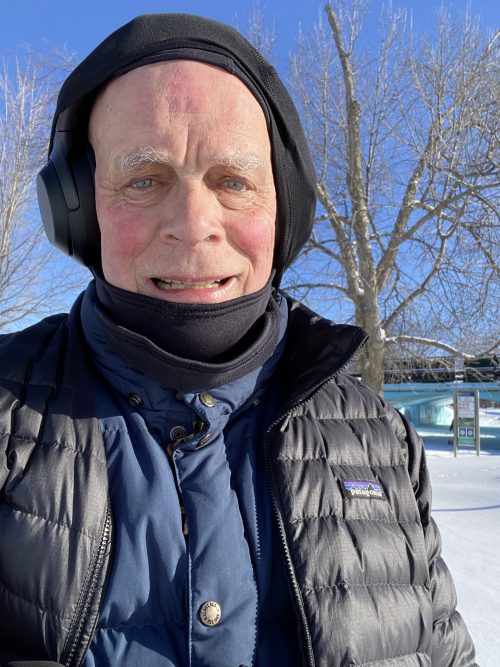I have recurrent head and neck cancer. A year ago, I received an end-stage diagnosis with a prognosis of months. The surgeons said that the tumour at the base of my tongue was inoperable.

Yet here I am this morning, skiing down a trail by the Ottawa River. How and why?
Because we just got the report from my most recent CT scan. In the wretched prose they apparently teach in Med School, the radiologist begins:
The previously described tongue base lesion is not identified. No other soft tissue lesion of the neck identified.
Get it? THEY CAN’T EVEN FIND THE TUMOUR. How did this happen?
Here I should tell you an inspiring story of how I fought on the beaches, fought on the landing grounds, fought in the fields and in the streets, fought in the hills; how I never surrendered and never gave up.
Did I fight? I have worked out every day I’ve been sick (albeit, on the worst days, the workout was just a long dog walk). But all that did was keep me sane. My tumour shrugged off 35 sessions of radiation that killed nearly everything else in my throat. Possibly my pushups entertained it.
What’s killing my tumour is pembrolizumab, the immunotherapeutic drug that the chemotherapy unit drips into my veins every three weeks. It works by disabling the molecular mechanisms whereby the tumour evades my immune system. The drug works only with a small group of people whose immune system is calibrated in just the right way, and I am such a person. The remission is a pure unmerited gift.
How do I go forward from here? The odds are still that cancer will come back to kill me. There are likely a few cells somewhere, multiplying away. If they survive, these cells will eventually evolve a new way to counter my immune system that the pembrolizumab cannot fix. If so, cancer will return.
After having been through an extended period of facing death every day, I’d be a fool to think that “my life is saved.” I have an extension for which I am deeply grateful. I hope I can use it well.
